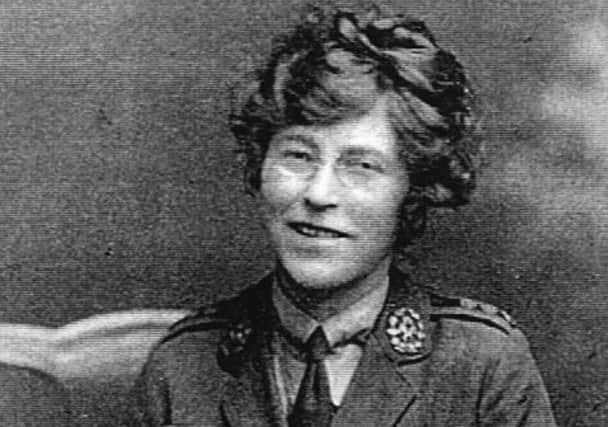How dedicated Wakefield suffragist fought until death for equal votes for women


When Britain went to the polls on 14 December 1918, it was a milestone moment. For the first time, women were among the voters in a General Election. In total, 8.5 million of them were eligible to ballot - and at last have their say in the future running of the country.
But still not everyone had a voice. The Representation of the People Act, passed on February 6 a century ago, gave women the vote, providing only that they were over the age of 30 and either they or their husband met a property qualification. It was not until a decade later, with the passing of the 1928 Equal Franchise Act that women were given equal voting rights with men - and all those over the age of 21 could at last take to the polls.
Advertisement
Hide AdAdvertisement
Hide AdIt was for this equality that Wakefield-born suffragist Florence Beaumont campaigned tirelessly. As a memorium piece in The National Council of Women’s News recalled following Florence’s death in 1929, “asked at the age of fourteen what reform was most necessary, she answered ‘that women should vote’.”
Her dedication to that cause was unwavering. Research by the Forgotten Women of Wakefield (FWW) project, which is exploring and honouring the lost histories of the city’s women, is shining a light on the active role Florence played in the suffrage movement, both up to 1918and beyond, continuing in pursuit of equal franchising.
Born in 1876, Florence became heavily involved with civic society affairs around the turn of the 20th century, whilst keeping house for her father following her mother’s death.
In March 1910, the Wakefield Women’s Suffrage Society was formed at a drawing-room meeting in Florence’s home, and she was appointed secretary.
Advertisement
Hide AdAdvertisement
Hide AdThree years later, she led the Pilgrimage of Suffrage march through Wakefield; organised by the National Union of Women’s Suffrage Societies, The Great Pilgrimage saw women march to London from all around England and Wales.
Florence, who following her father’s death in 1917 trained in nursing, moved to London after the Great War to focus on her work with the suffragist movement, campaigning for equal franchise and equality of liberty, status and opportunities. In August 1922, she spoke at the National Union of Societies for Equal Citizenship’s summer school.
“[She] addressed the audience highlighting that although ‘half a loaf was better than no bread’, limiting women’s vote to those over the age of 30 reflected the absurd views of those who were afraid of a ‘monstrous regiment of women’ that would swamp the electorate,” says Alexandra Vaughan, a member of the FWW project group, who has written about Florence’s work.
Committed until the end, Florence maintained various roles at national and international organisations in the pursuit of equality between men and women, right up until her death, working with the likes of the Open Door Council and Equal Political Rights Campaign Committee.
Advertisement
Hide AdAdvertisement
Hide Ad“Out of all of our Forgotten Women so far I admire Florence the most,” says Sarah Cobham, CEO of Dream Time Creative, the arts company behind the FWW project. “She had a sharpness of wit, mind and tongue and paid no heed to the distractions so many people put in front of her.
“I am grateful to her for not being content with the small victory of [some] female citizens being able to vote in 1918 and for pushing for a strong voice not just in Wakefield and the UK, but also in Europe. In these difficult political and social times I take a leaf out of her book and stay focused on this project which is making such a difference to the woman’s voice at this time.”
Florence will be recognised with a blue plaque on Bond Street in Wakefield city centre next March.